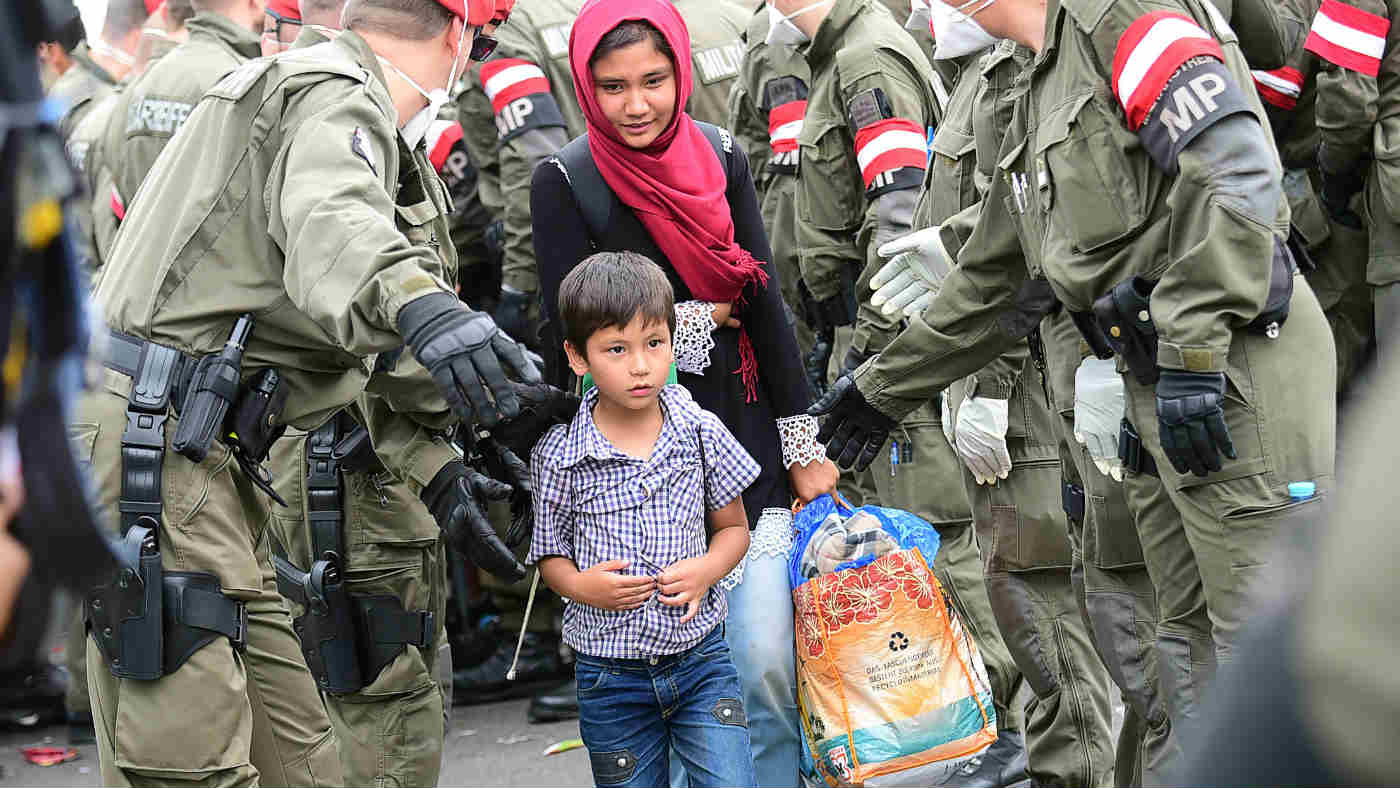Austrian troops to stop refugees at border with Italy
Armoured personnel carriers sent to guard Brenner Pass - a 'potential migration hotspot'

A free daily email with the biggest news stories of the day – and the best features from TheWeek.com
You are now subscribed
Your newsletter sign-up was successful
A diplomatic row has broken out between Austria and Italy over the influx of refugees entering Europe.
Austrian defence minister Hans Peter Doskozil said troops could be sent to the border with Italy to stop migrants entering the country.
He added that four armoured personnel carriers had already been sent to the Tyrol region in the Alps to guard the Brenner Pass, which is "seen as a potential migration hotspot", says the BBC.
The Week
Escape your echo chamber. Get the facts behind the news, plus analysis from multiple perspectives.

Sign up for The Week's Free Newsletters
From our morning news briefing to a weekly Good News Newsletter, get the best of The Week delivered directly to your inbox.
From our morning news briefing to a weekly Good News Newsletter, get the best of The Week delivered directly to your inbox.
While Austria currently maintains border checks with Hungary and Slovenia, any attempt to block the arrival of people from Italy would be a direct violation of the EU's open border Schengen system.
At the height of the refugee crisis in 2015, Austria took in more than one per cent of its entire population in migrants. Many fear there could be another influx after a surge in those crossing the Mediterranean.
That is a "political hot potato" in Austria, "where a parliamentary election is scheduled in October with immigration shaping up as a central issue", says Reuters.
The UN refugee agency UNHCR estimates that nearly 85,000 migrants and refugees arrived in Italy in the first half of the year, up 20 per cent on the first half of 2016.
A free daily email with the biggest news stories of the day – and the best features from TheWeek.com
Italy, which lies 290 miles from North Africa, has surpassed Greece as the preferred entry point to Europe for people smugglers, refugees and migrants looking to escape the chaos of Libya.
The country's leaders believe the current scale of migrant arrivals is "unsustainable", the BBC says. Last week, Rome said it was considering blocking boats carrying migrants from landing at its ports after nearly 11,000 refugees arrived on its shores in five days.
With all those rescued off the coast of Libya being taken to Italy, "an intense debate has raged about whether NGOs waiting to rescue people off Libyan coastal waters were acting as an incentive for people-smugglers", says The Guardian.
Mattia Toaldo, an expert on Libya at the European Council on Foreign Relations, told the paper the move was "a panic measure".
He added: "It is most likely designed to force Europe to take some kind of other action. It also shows that the ideas tried so far have failed."
Last month, the European Commission agreed an action plan to help Italy and Greece cope better with the influx.
It includes an extra €46m (£40m) to help Libya beef up border controls and tackle the smuggling gangs and €35m (£31m) more for Italy to step up processing of migrants and returns of failed asylum-seekers.
It also calls for closer work with African countries, including Mali and Niger, to stem the flow of migrants.
However, Amnesty International dismissed the plan, saying that "outsourcing more and more responsibility for search and rescue to the Libyan coastguard is irresponsible and ineffective" and will "lead to more deaths at sea".